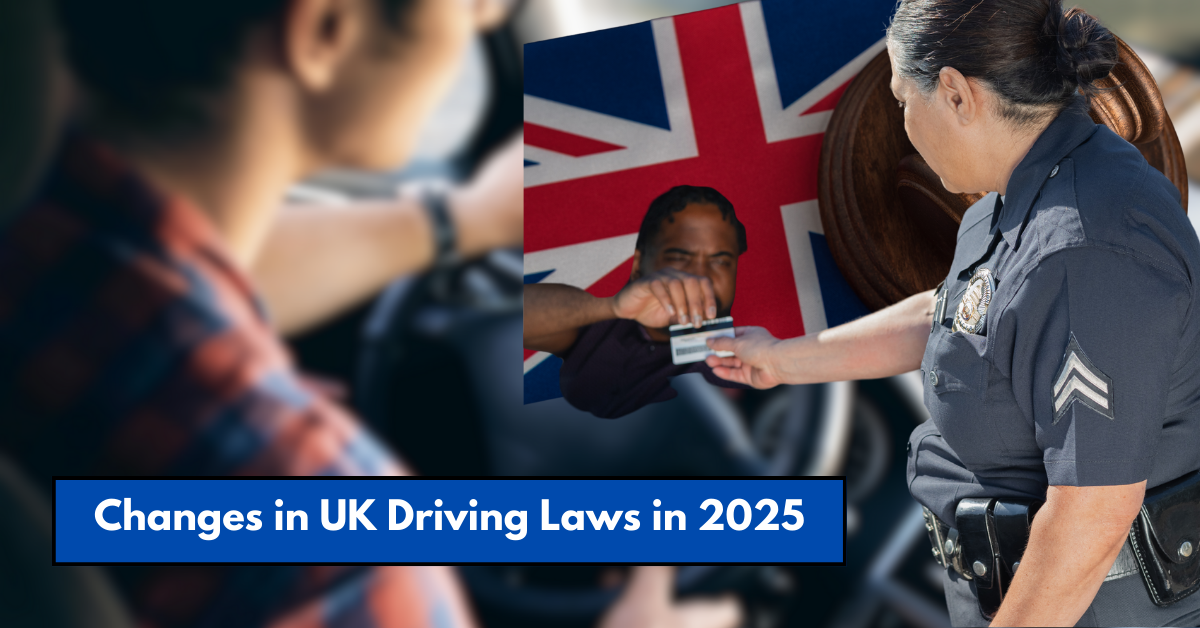With 2025 bringing significant changes for drivers in the UK, understanding the new regulations and their implications is essential. These updates address road safety, environmental issues, and fair taxation.
Additionally, the Driver and Vehicle Licensing Agency (DVLA) plans to revoke thousands of licences due to medical conditions or administrative oversights. Here’s a breakdown of the new rules and the reasons behind licence revocations.
New Driving Regulations in 2025
1. Vehicle Excise Duty for Electric Vehicles
From April 1, 2025, electric vehicle (EV) owners will no longer enjoy exemption from Vehicle Excise Duty (VED). EVs will incur a £10 fee during their first year of registration. Vehicles costing over £40,000 will also face the Expensive Car Supplement, an annual charge of £410. These changes aim to align EVs with other premium vehicles, impacting the total cost of ownership for eco-friendly cars.
2. Higher Benefit-in-Kind (BiK) Tax for Company Cars
Starting in April 2025, the BiK tax for company vehicles will increase. For low-emission vehicles, the rate will rise from 2% to 3%, with further increases for higher-emission cars. Vehicles with CO2 emissions above 154g/km will have a maximum BiK rate of 37%, significantly increasing costs for some drivers.
3. Safety Permits for HGVs in London
Heavy Goods Vehicles (HGVs) operating in Greater London must now comply with the Direct Vision Standard (DVS). By May 4, 2025, HGVs must secure a safety permit, ensuring drivers have a clear field of vision and enhanced vehicle safety features. Non-compliance could result in Penalty Charge Notices (PCNs).
4. Updated Tachograph Rules for Commercial Vehicles
From August 19, 2024, commercial vehicles over 3.5 tonnes must use updated tachographs. These devices monitor driving behavior and record border crossings, ensuring better oversight of international transport and compliance with driving hours.
5. End of Congestion Charge Exemptions for EVs
As of December 25, 2025, electric and hydrogen-fueled vehicles will no longer be exempt from London’s Congestion Charge. Drivers currently saving up to £15 daily will need to adjust to this added expense when commuting through central London.
Reasons for Licence Revocation by the DVLA
The DVLA revokes thousands of driving licences every year due to various reasons, including health issues and administrative errors. Here’s a closer look at why licences are revoked:
1. Medical Reasons
Between 2014 and 2019, over 360,000 licences were revoked due to health conditions. Common conditions include:
- Vision problems
- Cognitive impairments
- Heart or neurological issues
- Alcohol or substance abuse
- Seizures or blackouts
- Diabetes
Drivers must inform the DVLA of any health condition listed in their guidelines. Failure to do so can result in fines of up to £1,000, invalidation of insurance, and possible prosecution in the event of an accident.
If notified, the DVLA may request a medical examination or driving assessment before deciding whether a licence can be retained.
2. Accumulation of Penalty Points
New drivers face a two-year probationary period after passing their test. If they accumulate six or more penalty points during this time, their licence is automatically revoked.
Points received before passing the test are also considered. Regaining a licence requires reapplying for a provisional licence and retaking both the theory and practical driving tests.
3. Failure to Submit Required Documentation
The DVLA may revoke a licence if drivers fail to submit requested documentation, such as for penalty points or other administrative updates.
To avoid this, drivers must keep their address updated and respond promptly to correspondence from the DVLA, police, or courts.
4. Licences Issued in Error or Fraudulently
Licences mistakenly issued or obtained through fraudulent applications are subject to revocation.
5. Immigration Status
Drivers under immigration control who lack permission to remain in the UK may have their licences revoked upon referral from the Home Office.
Steps to Take if Your Licence is Revoked
If the DVLA revokes your licence, they are required to:
- Provide reasons for the decision.
- Inform you when and how to reapply for a licence.
- Notify you of your right to appeal.
Drivers who disagree with the decision can request a reconsideration by submitting additional evidence. If the DVLA upholds the decision, you may appeal to a Magistrates’ Court within six months. However, you must cover legal costs and provide medical evidence to support your case.
How to Prevent Licence Revocation
- Keep your driving record clean by adhering to traffic laws.
- Inform the DVLA of any relevant health conditions.
- Update your address and respond to correspondence promptly.
- Seek legal guidance if facing potential revocation.
Conclusion
The new regulations in 2025 aim to improve road safety and ensure fair taxation. However, drivers must stay informed about these changes and comply with DVLA requirements to avoid licence revocation.
Whether it’s understanding new tax rules or managing health conditions responsibly, being proactive can save drivers from unnecessary stress and costs.
This article has been carefully fact-checked by our editorial team to ensure accuracy and eliminate any misleading information. We are committed to maintaining the highest standards of integrity in our content.
Filza specializes in simplifying financial topics for everyday readers. Whether breaking down Canada’s tax guides or U.S. benefits like SNAP and VA Disability, Filza’s relatable writing style ensures readers feel confident and informed. Follow her insights on LinkedIn or reach out via email at shewrites.health@gmail.com.
